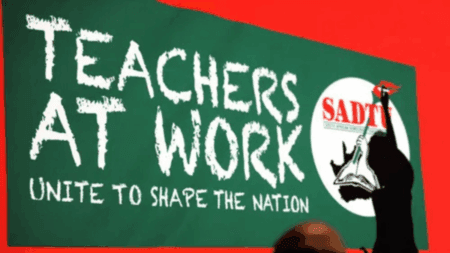LinkedIn has become an essential tool for job seekers across all industries, including those pursuing a career in government. In South Africa, government jobs offer stability, growth opportunities, and the chance to serve the public.
However, many job seekers are unaware that LinkedIn can be used effectively to land a government position.
Steps to Build Your LinkedIn Profile
Here’s a step-by-step guide to building a LinkedIn profile that will enhance your chances of being noticed by hiring managers in the South African government sector.
1. Professional Profile Picture
Your profile picture is the first impression you make, so it’s important to look professional. Choose a photo that reflects the work culture of the government sector – clean, formal, and approachable. Dress in business or business-casual attire and ensure the photo is clear, with good lighting and a neutral background.
2. Tailor Your Headline
Your LinkedIn headline should immediately convey what you do and what you are looking for. For government job seekers, it’s important to be specific, as recruiters often search for relevant keywords. Instead of simply saying “Job Seeker” or “Government Aspirant,” consider a headline such as:
- “Experienced Public Administration Professional Seeking Opportunities in Local Government”
- “Data Analyst with a Focus on Public Sector Efficiency”
- “Project Manager with Experience in Municipal Government”
3. Craft a Strong Summary
Your summary should reflect your passion for public service and how your skills align with government roles. This is where you can explain your motivation for working in the government sector and highlight key achievements relevant to public administration.
For example:
- “I am a dedicated public servant with over five years of experience in municipal governance. My passion lies in improving community services through data-driven decision-making. I am now seeking a position in provincial or local government where I can further my contribution to public service.”
In this section, use keywords related to government functions such as “public administration,” “policy analysis,” “municipal management,” “compliance,” and “service delivery.”
4. Detail Your Work Experience
For government roles, it’s crucial to outline your previous experiences in a way that shows your impact. Even if you haven’t worked in government before, highlight roles where you’ve demonstrated leadership, adherence to regulations, or service delivery. Quantify your achievements where possible:
- “Led a team of 15 in streamlining community services, reducing application processing times by 20%.”
- “Managed a budget of R2 million for a municipal infrastructure project, ensuring on-time delivery within budget.”
Tip: Mastering the Art of Job Applications: Dos and Don’ts
5. Highlight Skills Relevant to Government Jobs
In South Africa, government jobs often require specific skills such as project management, knowledge of public policy, and compliance with legal frameworks. Make sure to list these skills in the “Skills & Endorsements” section. Here are some skills that government recruiters might be looking for:
- Public Policy
- Budgeting and Financial Management
- Project Management
- Regulatory Compliance
- Stakeholder Engagement
- Community Outreach
- Strategic Planning
Encourage colleagues and supervisors to endorse these skills to increase your profile’s credibility.
6. Showcase Certifications and Qualifications
Government roles often require certain qualifications, especially in sectors like healthcare, education, and infrastructure. Use the “Licenses & Certifications” section to display any courses or certifications you have completed that are relevant to government positions. For example:
- Project Management Professional (PMP)
- Certification in Municipal Financial Management
- Advanced Certificate in Public Administration
- Occupational Health and Safety (OHS) Training
Including these will demonstrate your readiness to meet the requirements of government roles.
7. Engage with Relevant Content
LinkedIn is not just a static profile but a dynamic platform where you can engage with the community. Follow government departments, agencies, and professionals in the public sector. Share and comment on relevant content such as updates on policy changes, discussions on public administration, and news on government projects. This not only shows your interest in government work but also keeps you informed of the latest developments.
8. Network with Government Professionals
Networking is essential when pursuing a career in the public sector. Reach out to government professionals, hiring managers, and recruitment agencies that specialize in government positions. Personalize your connection requests by mentioning your interest in government roles and how their experience aligns with your goals.
9. Follow Government Job Pages
Several South African government agencies and departments have LinkedIn pages where they post job vacancies, updates, and relevant content. Follow these pages and set up job alerts to stay ahead of the competition:
- South African Government
- Department of Public Service and Administration (DPSA)
- Local and Provincial Government Agencies
- Government Recruitment Agencies
By following these pages, you increase your exposure to government job openings and get insights into what’s happening within various departments.
10. Recommendations
Request recommendations from supervisors, colleagues, or professionals you’ve worked with, especially if they’re in the public sector. A strong recommendation can provide social proof of your abilities and dedication. If you have completed an internship, project, or volunteer work in the public sector, ask your supervisors to highlight your contributions and work ethic.
Tip: How to Get a Reference Letter for Government Job Applications in 2025
Building a LinkedIn profile tailored for government jobs in South Africa takes careful attention to detail. By aligning your profile with government-specific roles, engaging with relevant content, and networking strategically, you can significantly increase your chances of landing a rewarding public sector position.






